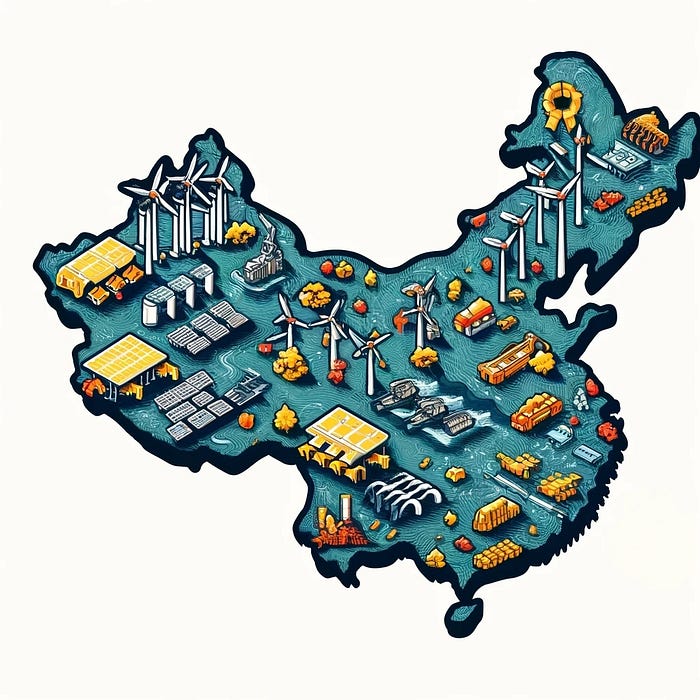One of the things everybody in the West knows about China is that it is not a democracy, and is instead a regime run with an iron fist by a single entity, the Chinese Communist Party, whose leadership rarely acts transparently, running the country without the need for primary elections, alternative candidacies, etc.
In general, those of us who live in democracies, with relatively transparent electoral processes, tend to consider the Chinese system undesirable, little more than a dictatorship where people have no say in who governs them.
That said, among the "advantages" of the Chinese system is that because the leadership never has to put its legitimacy to the vote, it can carry out very long-term planning in the knowledge that another administration isn't going to come along and change those plans.
Obviously, I put "advantages" in quotation marks because, as democrats, most of my readers would never be willing to sacrifice their freedom for greater planning, but there is no doubt that China, since its system works like this and its population seems to have accepted it for generations, intends to turn this into a comparative advantage, the term used in business when analyzing companies.
It turns out that China's capacity for long-term planning is achieving something unheard of in the West: it seems the country reached peak carbon dioxide and greenhouse gas emissions in 2023, and that the figures for 2024, driven above all by a determined increase in the installation of renewable energies, are not only lower, but apparently going to mark a turning point.
If you don't believe what you're reading, rub your eyes: we're talking about China, the country with the highest emissions in the world, which claimed that its arrival at Net Zero would be delayed by a few decades because the country had the right to consolidate its economy by burning the fossil fuels it deemed necessary, in the same way that the West had done for the last century or more.
India makes the same argument: the economies that we consider developed today have spent decades emitting carbon dioxide like there were no tomorrow, therefore, they should have the right to do so at least until their economies have reached a similar level of development.
Given that we are talking about the two most populous economies in the world, these arguments are problematic, given that we all live on the same planet, and it remains to be seen whether our species can continue to inhabit it if emissions continue to grow. No joke. And if you are somebody who denies climate change, stop reading this article now and please don't expose yourself to ridicule in the comments section, instead do yourself the favor of reading a little before coming back here.
What is happening in China? Well, in addition to having established technological leadership in solar panels and batteries, the two most strategic technologies for decarbonization and the energy transition, it has decided to fully commit to them and deploy them at a much higher speed than initially planned. Why? For the simplest reason of all: they are much cheaper.
While we in the West still complain that EVs are more expensive, or argue if they really do reduce emissions, or if batteries can be recycled, in China they are no longer the future, but the present, while solar panels and wind turbines are put everywhere they can reasonably be placed, with batteries installed to cover intermittency.
The result is that the world's biggest polluter may have peaked in emissions in 2023, and already be in the downward phase. The expansion of solar and wind generation meant that by March 2024 these sources covered 90% of the growth in electricity demand. Together with a very strong commitment to hydroelectric power, with some of the largest dams in the world, we are facing a commitment that will not only ensure all the country's energy needs, but do so at significantly lower costs.
It makes perfect sense that China is now the largest exporter of EVs: it is the logical evolution of a long-term planned economy based on an understanding of the cost advantages that technology provides. Sure, it is hedging its bets by planning more coal or nuclear power plants, but they are no longer the first option.
China and India were until recently the planet's biggest polluters, but they now offer a model for energy transition (there is still a long way to go; but we are talking about models, not a done deal).
It could soon be the case that the so-called developing countries will be showing the West the way forward.
(En español, aquí)


